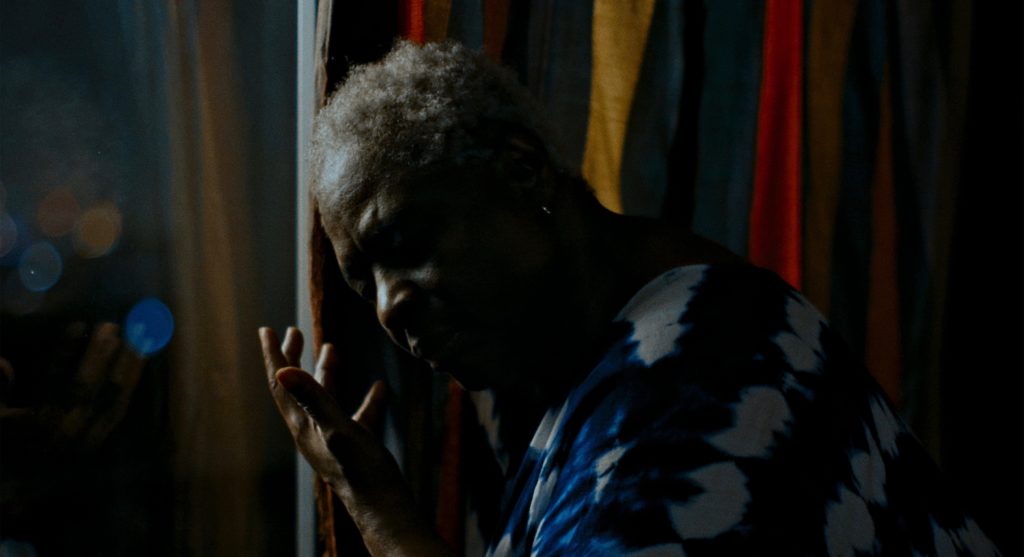
For the ardent cinephile or first-time audience member, a well-curated shorts programme is a sight to behold. Here you will find filmmakers from every corner of the world in conversation. To really lean into the metaphor: if variety is the spice of life, then a festival’s shorts section is the whole buffet, and then some.
With TIFF right around the corner, and in keeping with the theme of our most recent issue, SHORTS, cléo spoke with Short Cuts Programmer, and filmmaker in her own right, Danis Goulet about her strategy in selecting films and what to keep an eye out for at this year’s festival.
This year’s short film line-up boasts 59 short films in eight programmes from over 30 countries; 40% of the line-up is directed by women. Can you speak a bit to your programming strategy?
I co-program the section with Jason Anderson and we want audiences to find the same strength and range of work and diversity of experiences and perspectives that viewers expect from the whole of TIFF. We look for work that surprises, delights, startles, excites and just plain weirds us out. Within the volume of submissions that we receive, the work we select has to stand out. We assemble a list of titles as we go through the process and will eventually start making a very long list into a shorter and shorter list that will make up the line-up.
We keep a lot of things in balance and are well aware of the larger cultural conversations that are happening about representation and the lack of female voices in film. A diversity of voices is something that we value, not just because of historic inequities and under-representation, but also because it makes our programme stronger and more robust. For me, diversity is intrinsically tied to innovation, which is one of our programming criteria. Films that are alive on screen are the ones that transcend clichés and show us aspects of the human experience that resonate in new and exciting ways. Having more women, people of colour, Indigenous and other marginalized voices behind the camera means more innovation and boundary-pushing in the medium — and this is not only reflected in our programming, but is also something that we’re really excited about.
What advice would you give short filmmakers looking to catch the attention of festival programmers?
This may be obvious, but the most compelling way to catch the attention of festival programmers is to make a great film! I always tell filmmakers who are just starting out to just keep making the work, as it is too easy to become discouraged. It takes time to find your voice as a filmmaker, and it is more important to pour everything into what you’re trying to make instead of looking outside of yourself for an idea of what programmers or funders might be looking for. Move towards your boldest, deepest, weirdest, funniest, and most honest inclinations and pour that into your work. And then keep refining your ideas. Also, watch as much work as you can from as many different countries and cinematic traditions as possible.
What can Toronto audiences look forward to from this year’s shorts programmes? Any recommendations?
This year, we selected 59 short films representing over 30 countries from out of over 4,200 submissions. The Short Cuts section is where you’ll find delightfully odd animated shorts like The Burden, an ingenious stop motion musical by Sweden’s Niki Lindroth von Bahr in which animal characters sing out their existential angst in a generic shopping plaza (the film had me at the Auto-Tune fish). We also have Yassmina Karajah’s Rupture, a potent drama on the refugee experience featuring a cast of first-time actors and war survivors who channel their personal experiences of loss and new beginnings into a fictional narrative. We are also thrilled to present the work of talents better known for being in front of the camera, like Molly Parker, who makes her directorial debut with the poignant family drama Bird, and Justine Bateman, whose FIVE MINUTES may be the most hilarious thing you’ll see this year. The slate of hard-hitting documentary shorts include Michelle Latimer’s Nuuca, a wrenching yet enigmatic look at the link between the resource extraction industry and violence against Indigenous women, and Ifunanya Maduka’s Waiting for Hassana, a harrowing first-person account of one girl’s escape from captivity the night that Boko Haram kidnapped 276 teenage girls from a town in Nigeria. Finally, we are excited to present Naledi Jackson’s The Drop In, a story that starts as a quietly mysterious Toronto hair salon drama and deftly morphs into a fiercely bad-ass sci-fi immigration thriller starring two dynamic women.
Originally published September 5, 2017





